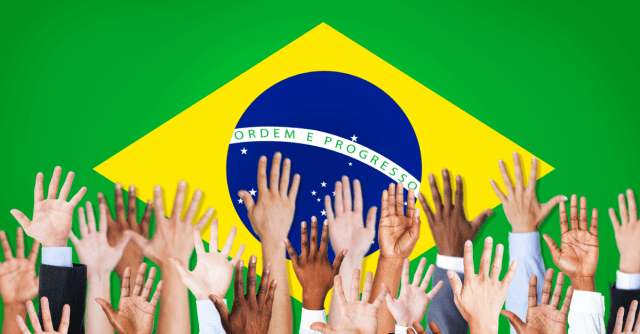An anti-racism group in Brazil is waging an intriguing campaign against intolerant internet commenters – ironically, by attempting to make racist comments as visible as possible.
The group Criola (a Portuguese word meaning “Creole”) is bringing offensive comments made on Facebook and Twitter from the virtual world into the real world by publishing them on giant billboards in neighborhoods where the commenters live.
Criola says on a website publicizing the “Virtual Racism, Real Consequences” campaign that it’s trying to educate people about the effects of racist comments, and hopes it will make people think twice before posting.
The group launched its campaign last July in response to what it says were racist attacks on an Afro-Brazilian TV broadcaster, Maria Julia Coutinho, after the news organization Journo Nacional posted her photo on its Facebook page.
Because some of the commenters had geolocation turned on, Criola was able to track down those users to their home cities and plaster their comments on billboards in their neighborhoods.
One billboard in the city of Feira de Santana, in the state of Bahia, shows a Facebook comment reading:
If you washed properly, you wouldn't be so dirty.
We’re not fluent in Portuguese, but according to the BBC, that was one of the milder comments highlighted by the campaign.
In an interview with the BBC, Criola founder Jurema Werneck said the campaign is supposed to encourage people to report racism they encounter online.
The billboards don’t show the names or faces of the commenters and the profile images and names are blurred out – Criola says it has “no intention of exposing anyone.”
But there is an intimidation factor too – Werneck told the BBC abusive commenters think they can “do whatever they want” in the comfort of their own homes, but they “can’t hide” from her group:
Those people [who post abuse online] think they can sit in the comfort of their homes and do whatever they want on the internet. We don't let that happen. They can't hide from us, we will find them.
The campaign is definitely shining a bright spotlight on big issues facing social media users, including harassment, trolling and even free speech (in Brazil, racist comments are illegal).
There’s another lesson in here for people concerned about their online privacy: anything you say online can come back to haunt you in the real world.
Consider turning off geolocation on your mobile devices – it can save you from online harassers coming straight to your doorstep.
And one more technique to avoid being outed as a racist: don’t be a racist.
Image of Brazil flag courtesy of Shutterstock.com. Billboard image courtesy of Criola.

